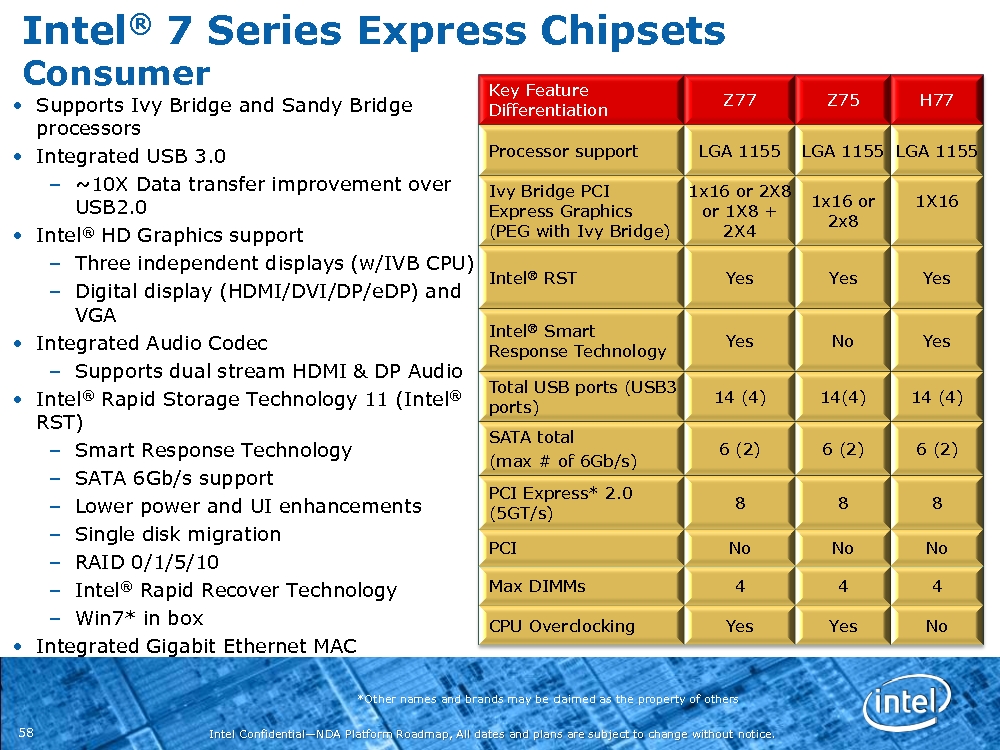USB-IF is the organ that makes sure the USB standard is maintained by all parties that wants to use it, to ensure forward and backwards compatibility. The Intel 7 series chipsets and a controller circuit from the company has now been approved for USB 3.0.
At the dawn of USB 3.0 many manufacturers were denied USB-IF (USB Implementers Forum) certification, since they simply dodn’t stick to the rules and regulations the standard had set. AMD was first to offer USB 3.0 in its chipset A75, thanks to a cooperation with Renesas that was first to get the approval of USB-IF.
Together with Intel Ivy Bridge the 7 series chipset will launch, which supports four USB 3.0 ports and these have now been approved by USB-IF. The chipsets that USB 3.0 certificate are Z77, Z75 and H77. Intel has also had a controller circuit approved; Intel C216 supporting an unknown number of ports that can be bought separately to add USB 3.0 ports to your Intel motherboard.

“This is a tremendous milestone for the industry,” sa Jeff Ravencraft, USB-IF:s President & COO. “With USB-IF certification of Intel’s integrated USB host silicon, host manufacturers will be able to bring SuperSpeed USB to the masses. Intel’s commitment to SuperSpeed USB will continue to provide peripheral device manufacturers a compelling incentive to develop a growing number of diverse SuperSpeed USB products.”
Now that both AMD and Intel will offer USB 3.0 directly in the chipset the market will hopefully move over to the new standard. That Intel now supports USB 3.0 with its chipsets is a huge step forward for the market to become mainstream, and offer USB 3.0 in all price categories, including OEM computers.




